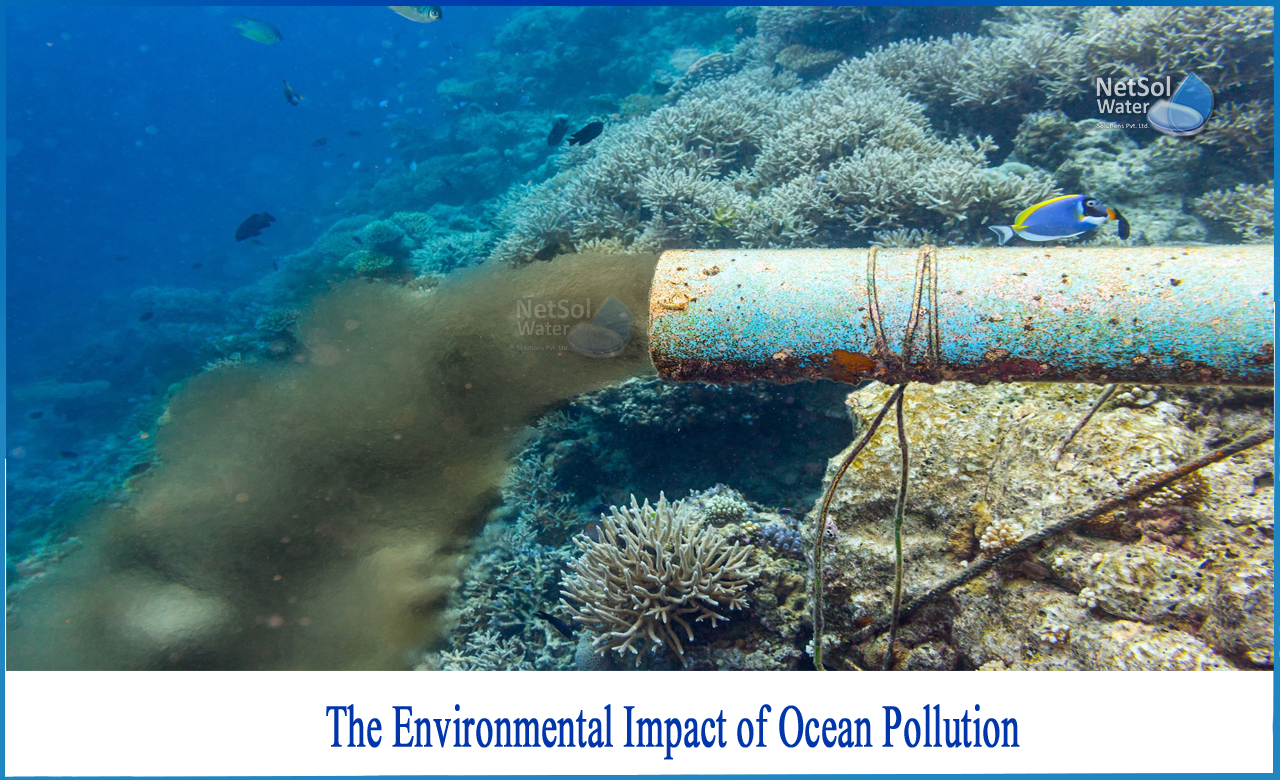Overview
Ocean pollution has a wide-ranging impact on the ecosystem. One of the most serious worries we have about our future is the state of the ocean. For years, human pollution has been finding its way out to sea, leaving its impact on marine life and coral reefs throughout the world.
We rely on the ocean to manage the climate since it contains over 97 percent of the world's water and provides us with more than 50 percent of our oxygen. Because it is critical to our survival, we must attempt to better comprehend the immediate and long-term repercussions of pollution.
How Does Pollution Get into the Ocean?
It is calculated that we pollute the ocean with around 12.7 million tonnes of plastic every year; the damage we are causing to marine life and our environment is irreversible. The unpleasant fact is that researchers project that by 2050, ocean plastic will surpass the biomass of all fish in the water.
"Common sorts of marine trash include numerous plastic things such as shopping bags and beverage bottles, as well as cigarette butts, bottle caps, food wrappers, and fishing gear,"according to National Geographic.
Plastic and chemical pollution are the two primary forms of pollution entering the ocean. Ocean pollution is a major problem for a variety of reasons, including health, the environment, and the economy.
What are the environmental impacts of ocean pollution?
Millions of marine species are endangered as a result of plastic pollution. What we see on the surface or washed up on the beach is really a small part of a much larger problem.
Microplastics are microscopic particles that have progressively degraded over time and are absorbed in the food chain of marine animals, causing health problems and even death. Whales, turtles, dolphins, sharks, fish, and sea birds are all affected by ocean pollution and are frequently damaged and unable to live as a result of debris.
Our oceans are being inundated with two kinds of pollution: chemicals and rubbish
Chemical contamination, sometimes known as nutrient pollution, is a cause for worry for health, the environment, and the economy.This sort of pollution happens when human activities, most notably the usage of fertilizer on farms, cause chemical runoff into streams, which eventually flow into the ocean.
The increasing concentration of chemicals in the coastal water, such as nitrogen and phosphorus, stimulates the establishment of algal blooms, which may be poisonous to species and detrimental to humans. Algal blooms' harmful impacts on health and the environment harm the local fishing and tourist economies.
Marine garbage includes all produced objects, the majority of which are plastic and end up in the ocean. Littering, storm gusts, and inadequate waste management all contribute to the build-up of this material, the majority of which originates on land.As a result, microplastic contamination migrates up the food chain, eventually becoming a component of the food that people consume.
Conclusion
Preventing and cleaning up after marine contamination are two solutions.
As a result, Netsol Water believes that in order to maintain our environment, everyone must work together to fully grasp their duties in pollution prevention.
Netsol Water is Greater Noida-based leading water & wastewater treatment plant manufacturer. We are industry's most demanding company based on client review and work quality. We are known as best commercial RO plant manufacturers, industrial RO plant manufacturer, sewage treatment plant manufacturer, Water Softener Plant Manufacturers and effluent treatment plant manufacturers. Apart from this 24x7 customer support is our USP. Call on +91-9650608473, or write us at enquiry@netsolwater.com for any support, inquiry or product-purchase related query.



